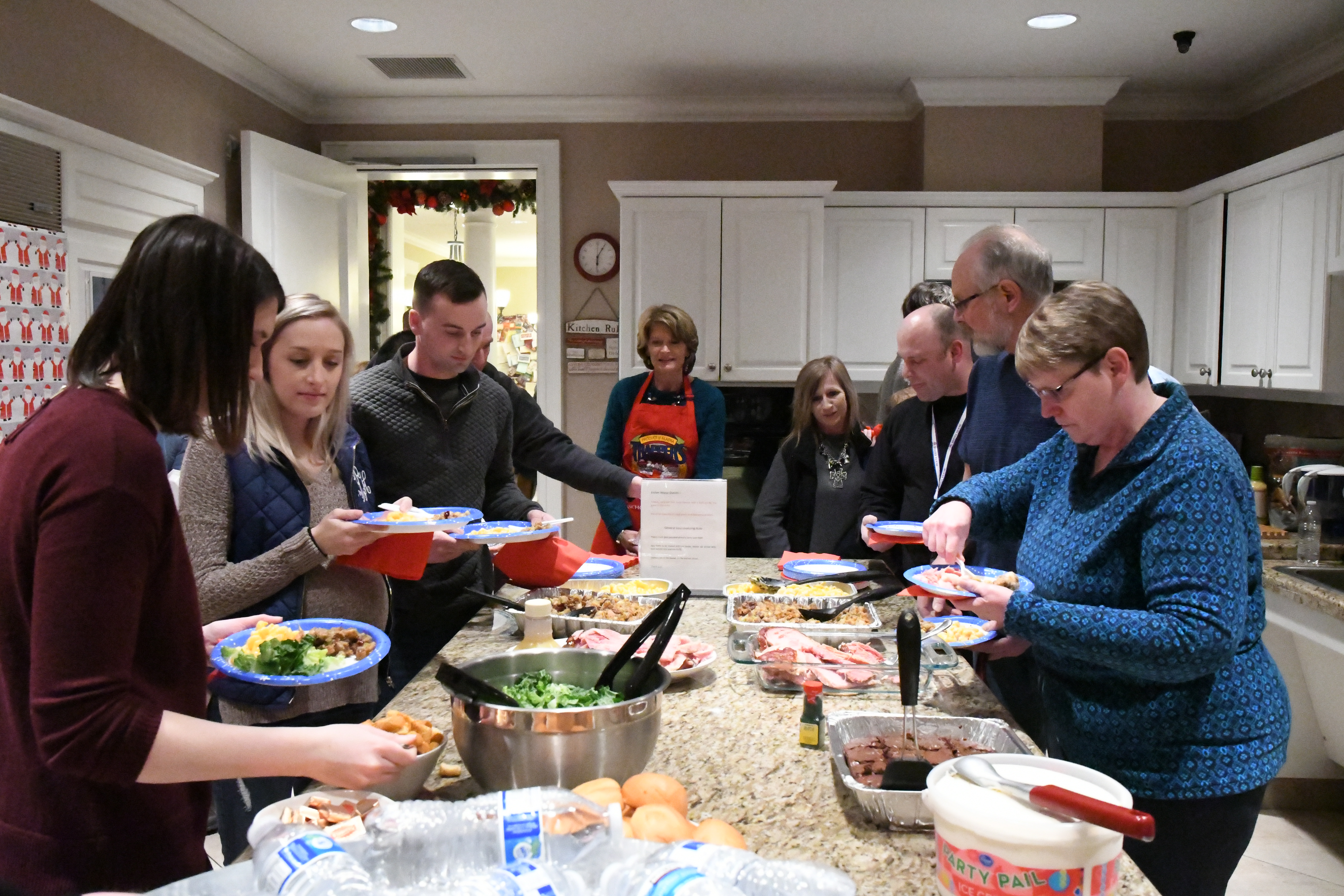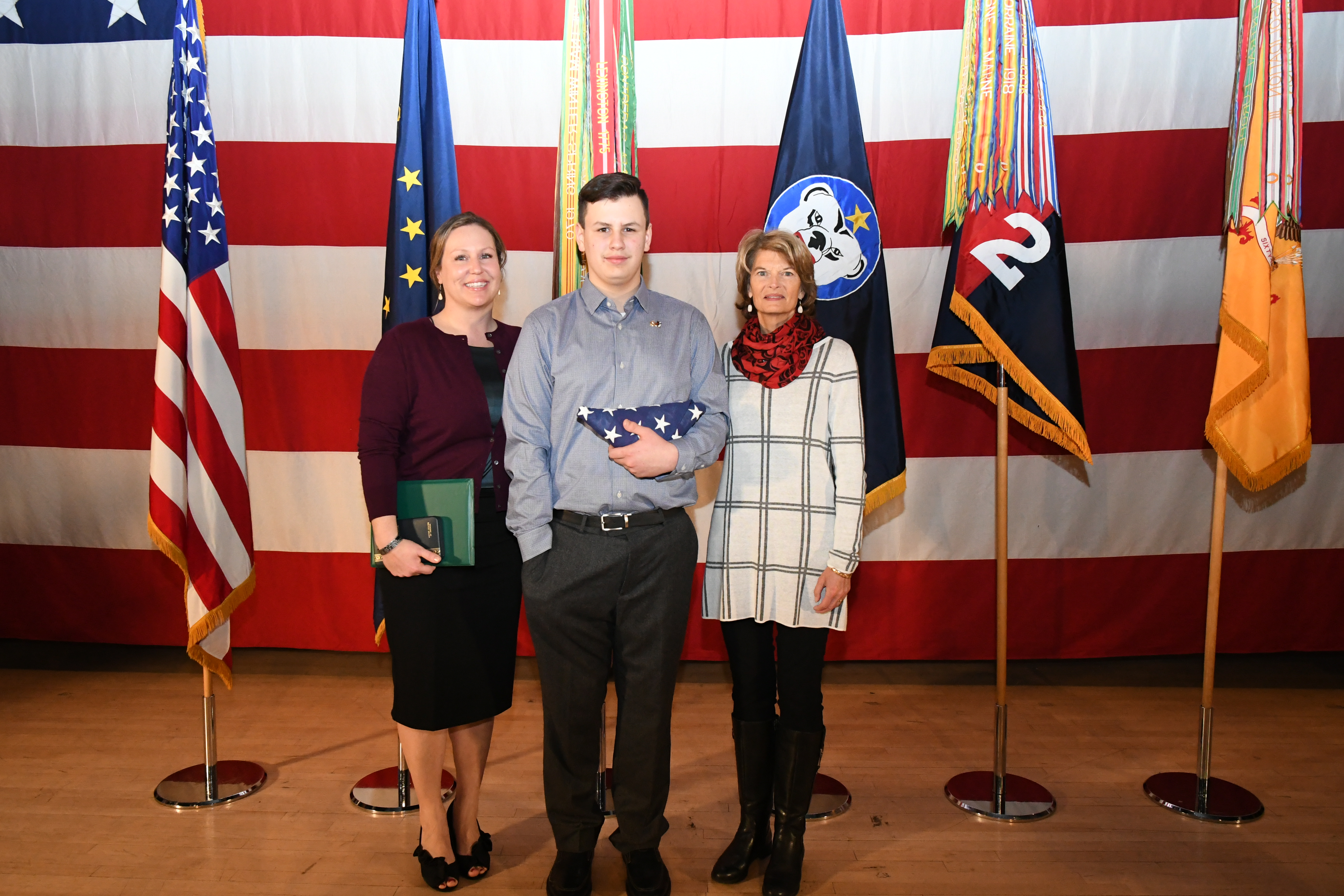Happy New Year
Season's greetings, Alaskans! The holidays are a time that should be spent with family, friends, and loved ones. So as we wrap up this busy month, I hope that you were able to spend time with those you hold most dear, reflecting on the blessings that we each have in our lives. My wish for each of you is that this holiday season brings a renewed sense of appreciation for what it means to call a place like Alaska home. From my family to yours, Happy New Year!
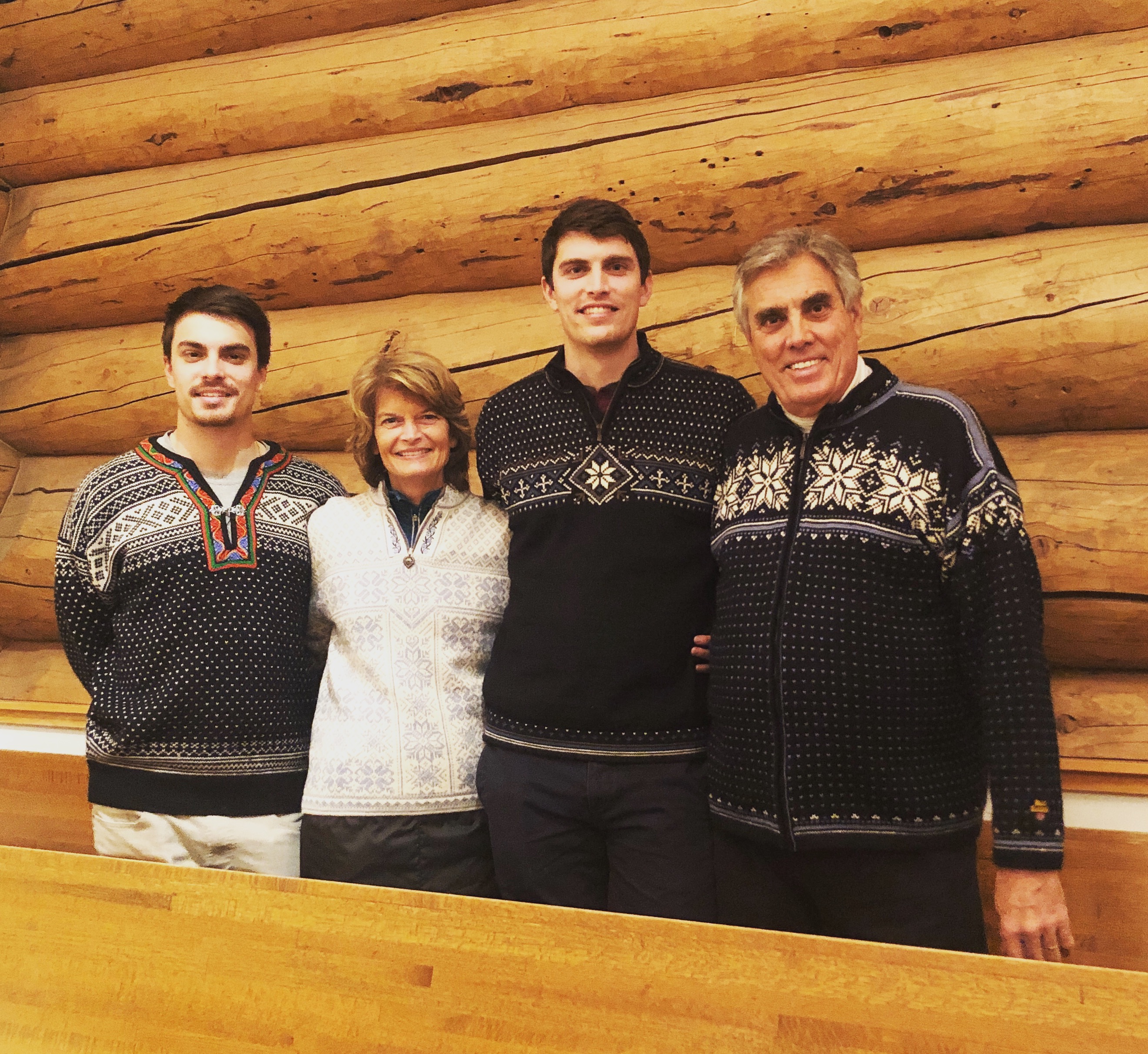
In Alaska and Washington D.C.
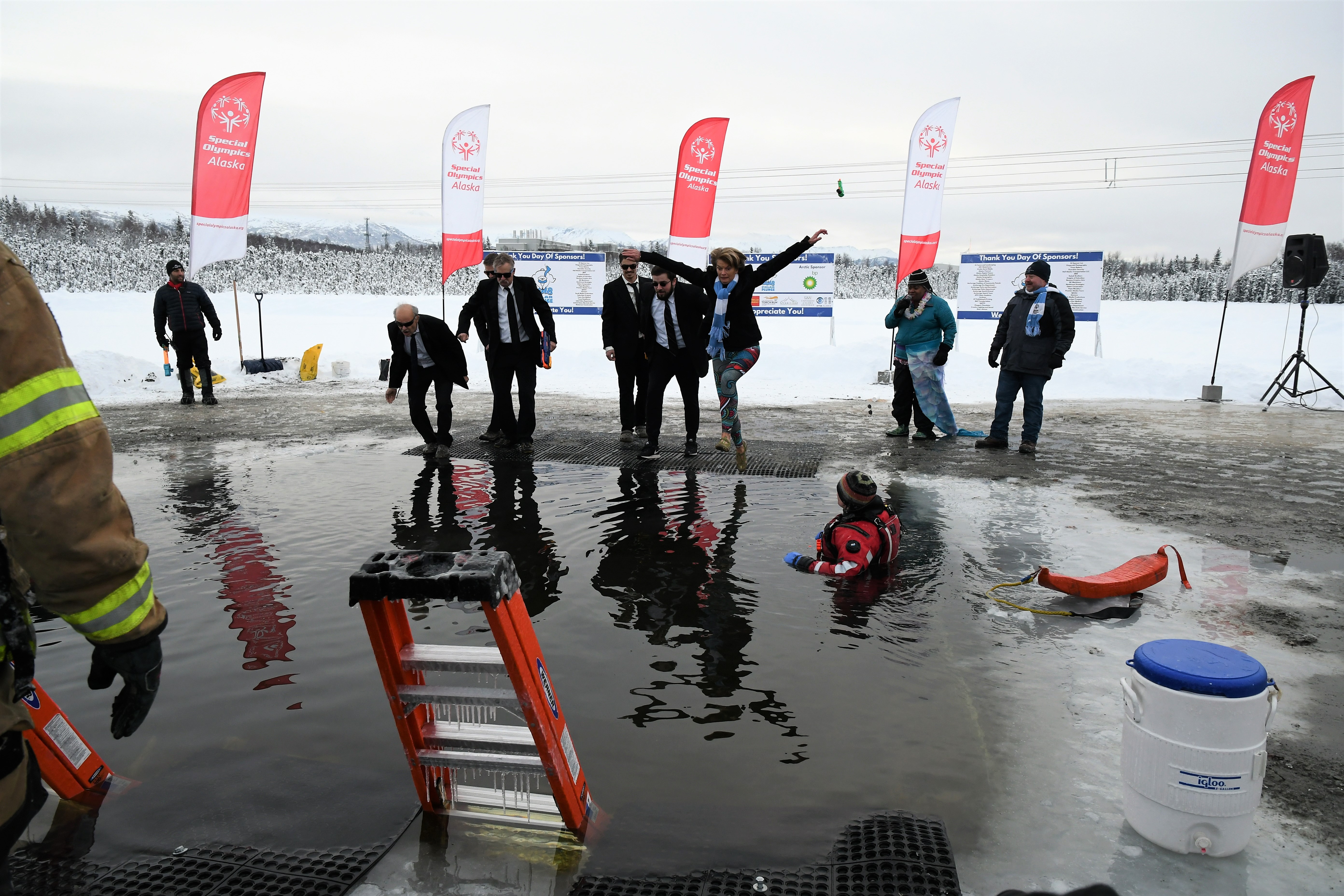
Providing a holiday meal for the current residents of the Alaska Fisher House, temporary housing facilities for service members and veterans receiving medical care on JBER—good food and good conversation!
At JBER, taking part in a ceremony to posthumously award Staff Sgt. Justin Gallegos, U.S. Army, with the Distinguished Service Cross—the second highest military award, given for valor in combat. Presenting his son, MacAiden, with a flag is a memory I’ll never forget.
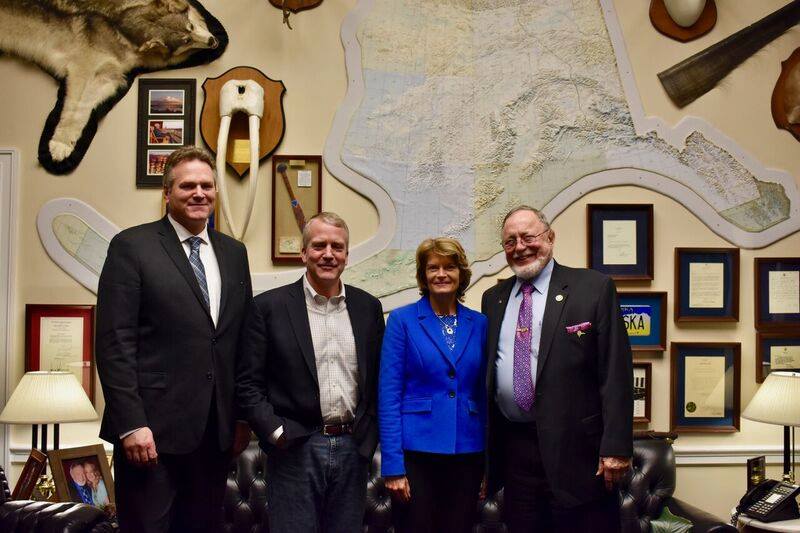
Meeting Alaska’s newly elected Governor Mike Dunleavy in Washington D.C. with the Congressional Delegation.
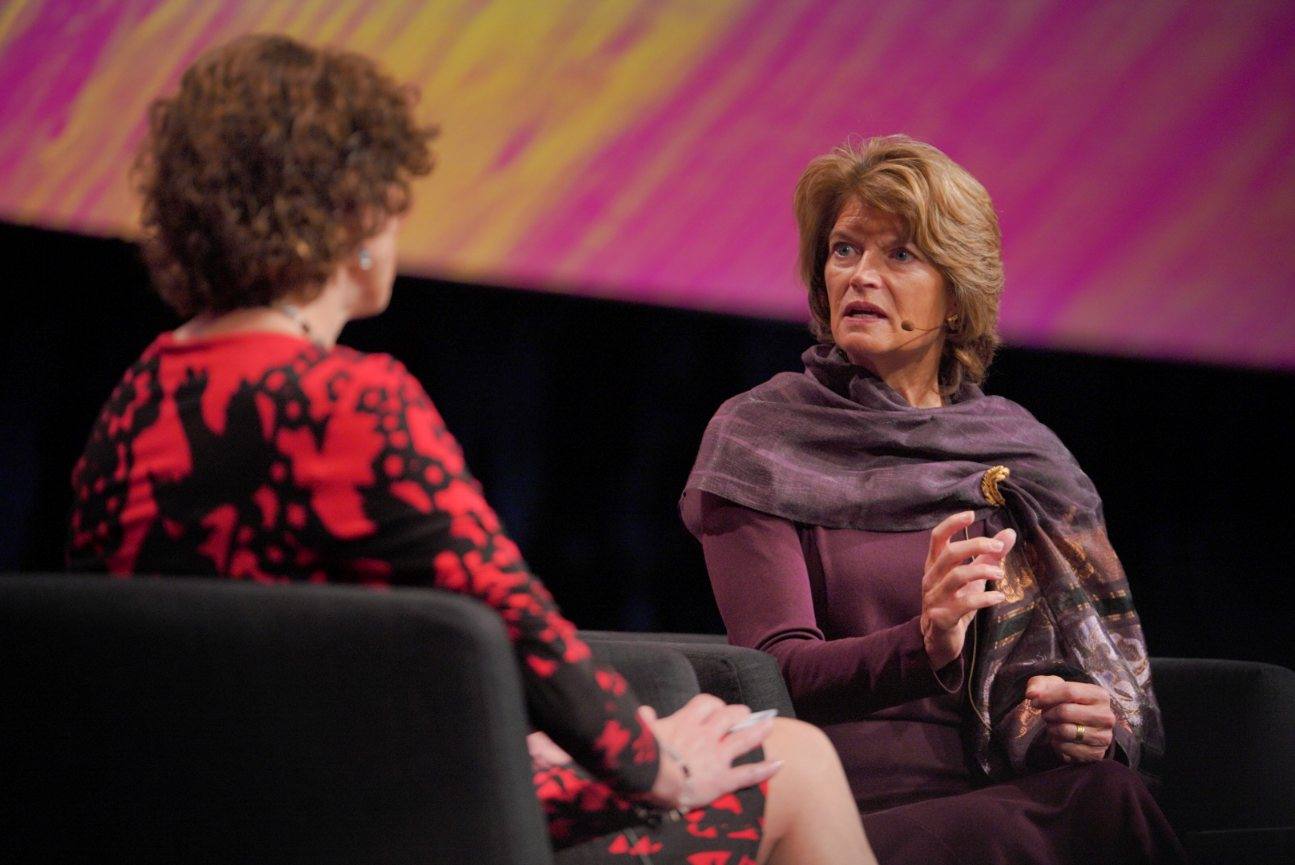
Speaking at the American Geophysical Union, in Washington D.C., about the importance of geoscience policy that addresses everything from natural hazards to mineral security and climate change.
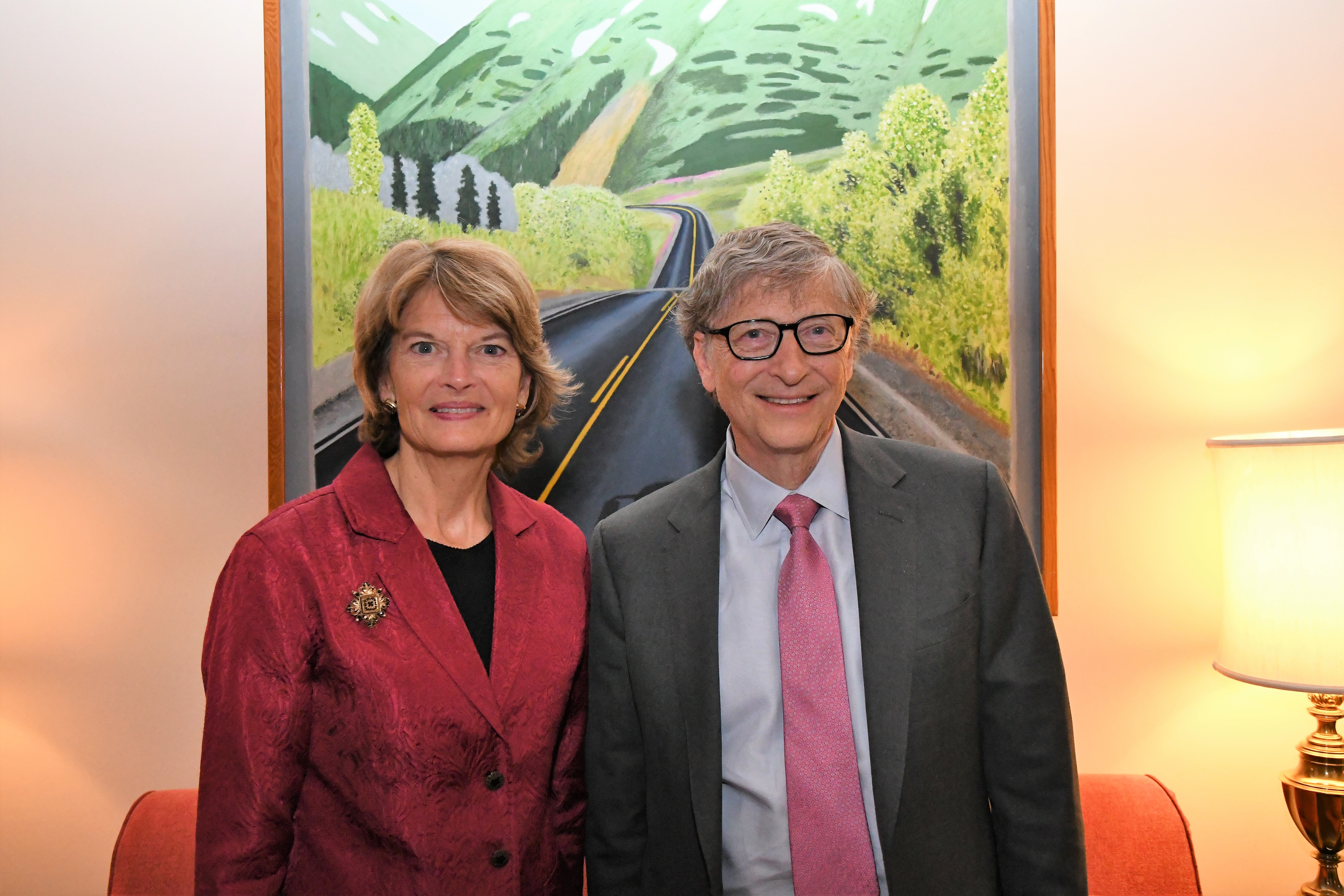
Meeting with Bill Gates in Washington D.C., to continue our conversation about encouraging energy innovation as a way to mitigate climate change.
ADVANCING INIATIVES
Funding the Government
- Both chambers of Congress have approved, and the President has signed, five of the 12 appropriations bills for Fiscal Year 2019, which together account for approximately 75 percent of the federal budget. This year we worked hard to return to regular order in the appropriations process, voting bills out of committee and the Senate with strong bipartisan support. The Appropriations Committee did its work, which is why I’m particularly disappointed we could not reach an agreement on the bills not yet enacted before funding for many federal government programs ran out at midnight on December 21, bringing us into a partial government shutdown. Shutting down the government, even partially, is no way to govern. It is disruptive, harmful, wasteful, and impacts hundreds of thousands of federal employees and contractors and all who rely on our federal programs. I remain committed to working with my colleagues on a solution to end this partial shutdown and fund the government.
- Click here for details on the effects of the government shutdown and frequently asked questions.
Bolstering Safety, Security, and Infrastructure
- I recently introduced legislation to increase America’s presence in the Arctic through two bills: the Arctic Policy Act (APA) and the Shipping and Environmental Arctic Leadership Act (SEAL Act). The APA takes steps to increase local and indigenous voices in federal science and policy in the Arctic. As shipping and maritime traffic in the Arctic is expected to grow, the SEAL Act establishes a corporation that will collect voluntary maritime shipping fees from vessels utilizing the region, which will fund resources and infrastructure necessary to ensure the safety, security, and management of the region.
- The Coast Guard Authorization Act of 2018, legislation to support the maintenance and repair of U.S. Coast Guard infrastructure, and improve safety among recreational boaters, was recently signed into law. Notably, this bill provides Alaskan fishermen permanent exemption of vessel discharge permitting requirements for commercial fishing vessels.
- A $23.1 million U.S. Department of Transportation BUILD grant was awarded to the village of Emmonak to construct a permanent dock and barge/landing craft ramp. I, alongside the Alaska Congressional Delegation, have pushed for this project because it addresses a growing demand for durable port infrastructure, including barge landing and road infrastructure in the region.
- Both the Senate and House passed legislation to overhaul how Congress handles sexual harassment claims. If we as members of Congress are going to change the culture of harassment nationwide, we must lead by example. I am proud of the progress we made to strengthen our own procedures to improve transparency, hold perpetrators accountable, and ensure everyone has a safe and protected workplace.
- The Indian Child Welfare Act of 1978 (ICWA) was put into place to address the disproportionately high number of Native children who were ‘adopted out’ from their families. Alaska Native children that are raised with the support of their family and community in connection to their culture and heritage inevitably become stronger citizens, adults, and parents. The Senate passed a resolution I cosponsored to commemorate the 40th anniversary year for ICWA, legislation that is as vital today as it was on the day it was enacted by Congress.
Supporting Health Initiatives
- Legislation I introduced with Senator Baldwin of Wisconsin, the Improving Access to Maternity Care Act, was just signed into law. Our bill helps ensure women have better access to timely, quality maternity care by identifying provider shortage areas in rural and underserved communities. Improving access to maternity care will increase overall safety, reduce rates of pregnancy-related deaths, and lower healthcare costs, long-term.
- Recently U.S. District Court for the Northern District of Texas Judge Reed O’Connor ruled in favor of Texas and its partner states, deeming the Affordable Care Act unconstitutional. The Texas v. Azar ruling has no immediate impact, and I am confident higher courts will review the decision. Regardless, we must preserve certain provisions of the Affordable Care Act, such as Medicaid expansion and protections for people with pre-existing conditions that prevent insurers from arbitrarily denying coverage. I introduced legislation in August with Senate colleagues that would make certain no one loses coverage based on health status. I am committed to ensuring that all Alaskans have access to affordable, quality healthcare.
- In response to learning that the Agency for Toxic Substances and Disease Registry (ATSDR) would not be including firefighters in the first-ever national per-and polyfluoralkyl substances (PFAS) study, Senator Shaheen of New Hampshire and I led a bipartisan group of Senators in a letter to the CDC and ATSDR, requesting that the agencies take additional steps to ensure that the health effects of occupational exposure to PFAS, particularly in firefighters, are sufficiently studied.
Honoring History, Culture, and the Arts
- I have long been an advocate for libraries and museums. I am proud the Museum and Library Services Act, legislation I introduced alongside Senator Reed, passed the Senate and House, sending it to the President to be signed into law. Our bill will help to strengthen the already amazing, diverse libraries and museums across Alaska and help them serve the changing needs of their communities in ever-more innovative ways.
- The Senate recently passed my resolution recognizing the heritage, culture, and contributions of American Indian, Alaska Native, and Native Hawaiian women in the United States and how they helped shape our country. I commend my Senate colleagues for supporting this legislation to honor the influence of Indigenous women as civil rights activists, warriors, community leaders, and so much more.
- The Senate passed bipartisan legislation I introduced with Senators Coons and Harris to award Congressional Gold Medals, one of the highest civilian honors given by Congress, to “Hidden Figures” Dorothy Vaughan, Katherine Johnson, Mary Jackson, and Dr. Christine Darden. The bill serves to commend these women, who overcame significant hurdles to attain their educational and professional goals, for their contributions to NASA’s success during the Space Race and highlight their broader impact on society; paving the way for women in STEM careers.
Fighting Burdensome Regulations
- The EPA recently announced a proposed rule to revisit the burdensome Waters of the United States (WOTUS) regulation imposed by the previous administration in 2015. This new proposal will protect water quality while providing clarity on the scope of regulation and restoring balance to the state and federal relationship. This is a big deal for Alaska that should help end years of concern, frustration, and uncertainty over a costly regulation that would have halted construction projects and other economic opportunities.
IN THE NEWS
- Sitka woman testifies in DC about missing, murdered Alaska Native women (Juneau Empire)
- Alaskan gives Senate testimony on missing, murdered women (KTVA)
- Murkowski discusses quake recovery, federal aid (KTVA)
- Earthquake hazards reduction legislation becomes law (Cordova Times)
- Savanna's Act passes U.S. Senate (Arctic Sounder)
- WATCH: Murkowski visits Anchorage to talk newly-passed earthquake response bill (KTUU)
- $23 million grant set aside for Emmonak dock (Bristol Bay Times)

.JPG)
